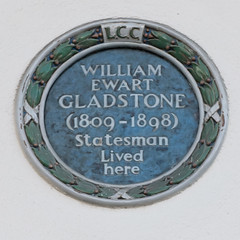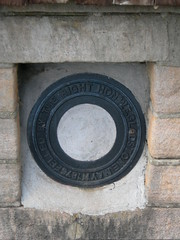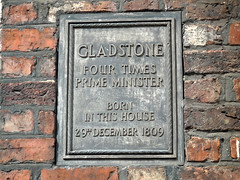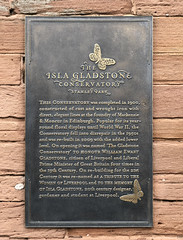William Ewart Gladstone


William Ewart Gladstone
(1809-1898)
statesman, 40th Prime Minister of the United Kingdom (1868-1874), 42nd Prime Minister of the United Kingdom (1880-1885), 44th Prime Minister of the United Kingdom (1886-1886), and 46th Prime Minister of the United Kingdom (1892-1894)
Family tree
Commemorated on 11 plaques
William Ewart Gladstone (1809-1898) statesman lived here
11 Carlton House Terrace, London, United Kingdom where they lived
Here lived three Prime Ministers: William Pitt Earl of Chatham 1708-1778 Edward Geoffrey Stanley Earl of Derby 1799-1869 William Ewart Gladstone 1809-1898
Chatham House, 10 St James's Square, Westminster, SW1, London, United Kingdom where they lived
In a house on this site lived from 1854-1875 Sir Charles Lyell 1797-1875 geologist,and from 1876-1882 William Ewart Gladstone 1809-1898 statesman
73 Harley Street, Westminster, W1, London, United Kingdom where they lived
William Ewart Gladstone 1809-1898 often stayed at this hotel then known as Lion Mansions Hotel
Royal Albion Hotel (facing sea), Brighton, United Kingdom where they stayed
Felled by the Right Hon W. E. GladstoneMay 11th 1875
Tunnel Road, Nottingham, United Kingdom where they felled a tree
Gladstone four times prime minister born in this house 29th December 1809
62 Rodney Street, Liverpool, United Kingdom where they was born (1809)
On this site the Rt Hon W. E. Gladstone delivered his last speech to his Greenwich constituents November 30th 1878
Eglinton Road School, Paget Rise, Plumstead, London, United Kingdom where they spoke (1878)
On this spot, awaiting sepulture in Westminster Abbey. Rested, from May 26 to 28, 1898. The body of The Right Honourable William Ewart Gladstone. Four times Prime Minister.
Westminster Hall, London, United Kingdom where they was
The Isla Gladstone Conservatory Stanley Park This conservatory was completed in 1900, constructed of cast iron and wrought iron with direct, elegant lines at the foundry of Mackenzie & Moncur in Edinburgh. Popular for its year-round floral displays until World War II, the Conservatory fell into disrepair in the 1950s and was re-built in 2009 with the added lower level. On opening it was named 'The Gladstone Conservatory' to honour William Ewart Gladstone, citizen of Liverpool and Liberal Prime Minister of Great Britain four times in the 19th Century. In re-building for the 21st Century it was re-named as a tribute to the women of Liverpool and to the memory of Isla Gladstone, 20th century designer, gardener and student at Liverpool.
Anfield Road, Liverpool, United Kingdom where they was
"Clinton Arms" Hotel known as the "Cardinals Hat" in the 14th and 15th centuries and as The Kings Arms during the 16th to early 19th centuries. Lord Byron stayed in this building during 1806 and 1807 when two volumes of his poems were being printed in Newark. W. E. Gladstone addressed Newark electors from a window in this hotel when returned as Conservative MP in 1832. An important posting inn during coaching days.
Market Place, Newark-on-Trent, United Kingdom where they spoke (1831)
This house was a favourite residence of the Rt. Hon. W. E. Gladstone. M.P. as a guest of the Rt. Hon the Earl of Aberdeen. G.C.M.G from 1882 to 1896.
Dollis Hill House, Gladstone Park, Neasden, London, United Kingdom where they was











